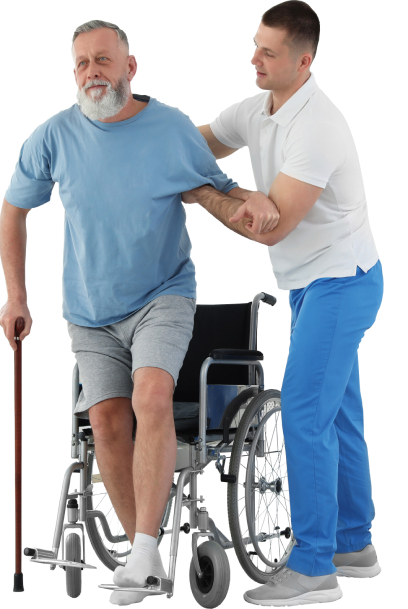The Clark Griswold of neighborhoods across the region are getting their time in the spotlight as we feature photos of the best holiday displays in Northern Virginia and Fredericksburg.
We asked Patch readers to submit their Christmas and holiday displays outside their homes. Patch has rounded up submissions we've received by town and other Patch editor recommendations. These displays are worth a visit to see how residents have gone all out with fun inflatables, dazzling lights and sometimes synchronized shows.
If you spend days or weeks painstakingly hanging strands of lights on your house, trees and shrubs, synchronizing lights to music, or hauling figurines out to your lawn, Patch wants to hear from you. Send your display photos, address, description of the holiday display and other information you'd like to share about your display to [email protected].
Feel free to continue submitting your displays through Dec. 24.
IMPORTANT: Please include your first and last name in the submission. By submitting a photo, you're giving Patch permission to publish it for this feature and future stories. Photos should be original and taken by the person submitting the photo.
6004 St. John Drive, Alexandria
Courtesy of Brian Smith
The Franconia Lights display features more than 20,000 holiday lights synchronized to favorite holiday songs and a 12-foot Christmas tree. Visitors can control the music through the display's website. When weather permits, there will be snow and hot chocolate served. Visitors can scan the QR code upon arrival and listen to the show in the car or on a phone.
The display is raising funds for the Blood Cancer Society. Follow the display on Facebook and www.franconialights.com.
23554 Boca Field Terrace, Ashburn
The Brais-wald light display is hosted by Scott & Molly Brais in the Brambleton community. On weekends, music is added to the display. Visit every night now through New Year's Eve.
20142 Kinglet Court, Culpeper
The Johnston Christmas Wonderland started as a display in Dale City. It has continued on since the family moved to Culpeper, and it gets bigger every year. The display runs nightly from 5 p.m. to 10 p.m., weather permitting. Follow it on Facebook.
7 Cavern Ct, Fredericksburg
This display named Magical Kingdom features twinkling synchronized lights with music and other unique decorations. Lights are on nightly from 5:30 p.m. to 9 p.m.
2001 Millgarden Drive, Fredericksburg
The Hilliard home's yard is filled with holiday goods, from twinkling lights to snowflakes and greenery.
1304 Sawbridge Way, Reston
11121 Blue Herron Circle, Spotsylvania Courthouse
The Patrick family's 2025 display features 147,000 LED lights, 11 firefly laser light systems and a new projection show with festive graphics, music and holiday movie clips. Visitors can listen to FM radio station 87.9 to follow the show.
Resident Paula Patrick said the display took at least 100 hours of work. Over a half acre is covered in lights, including highlights like a 9.7-foot-tall Bumble and his movie costars, an 8-foot-tall Santa, a 9-foot-tall reindeer, a large pond with a giant iceberg, a 140-foot trickling stream flowing the length of the yard and ditch line, a sparkling frosted field with a 40-foot-tall candy cane tree, and multicolored tree with 5,000 lights up to 60 feet up the trunk. On one side of the yard is the Patrick Family Christmas Tree Farm with animatronic deer, and a glittering green lawn. A new feature is a Santa's village.
Visitors may walk up to the driveway to the red and white markers to see the projection show and get a complimentary candy cane. Lights are on nightly from 5 p.m. to 11 p.m., weather permitting. Only the projection shows will run during heavy rain, as the LED lights pose safety risks.
"Please come by and enjoy the lights and show, and have a joyful and merry Christmas Season!" Paula Patrick said.
10140 Hillington Court, Vienna
Hillington Court continues the tradition of multiple homes decorated with Christmas displays. This year, three displays are up.
2540 Oak Valley Drive, Vienna
This display showcases festive elements like a Charlie Brown Christmas tableau and “You are in Bedford falls” sign from "It's a Wonderful Life." The display is on until 11 p.m. nightly and will be on 24 hours on Christmas Eve and Christmas Day.
2731-2743 Oakton Park Court, Vienna
This cul-de-sac of homes goes all out as a neighborhood for holiday decorating and raises funds for One Neighborhood Foundation and Rustic Love Vienna. Oakton Park Lights includes numerous homes with holiday displays, and neighbors will even greet visitors and hand out candy canes on most weekend evenings. There are QR codes on site to donate to the featured nonprofits.
Lights are on between 5 p.m. or 5:30 p.m. to 10 p.m. or 10:30 p.m. through the first weekend in January. Visit the Oakton Park Lights Facebook page for updates.
More Holiday Lights Suggestions

 703-420-7602
703-420-7602




 Service Areas
Service Areas























